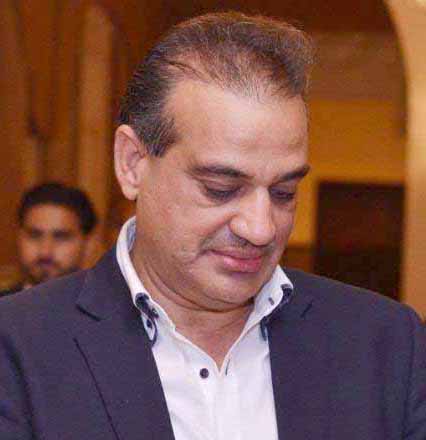Opinion
Ansar Mahmood Bhatti
The recent militant attack in Pahalgam has dangerously reignited hostilities between India and Pakistan, deepening distrust at a time when both nations should be investing in regional peace and internal development. In a usual response, India blamed Pakistan for orchestrating the assault and circulated a dossier with its claims to over 30 friendly countries, seeking global condemnation. Predictably, Pakistan has rejected the accusation, calling it a “false flag operation” intended to deflect attention and create justification for India’s aggressive policies.
In a move that has drawn widespread concern, Indian authorities have threatened to unilaterally withdraw from the Indus Waters Treaty—a historic water-sharing agreement mediated by the World Bank in 1960. Though such a withdrawal is not legally feasible without global ramifications, the mere suggestion has serious implications. Pakistan, heavily reliant on these shared waters, has responded sharply, warning that any attempt to restrict or stop water flow could be considered an act of war.
This war of words, if not carefully contained, could spiral into something far more dangerous. Both countries are nuclear-armed. The stakes are too high to ignore.
Yet, history offers a sobering reminder: wars between India and Pakistan have never resolved the core issues between the two nations. From 1948 to Kargil in 1999, every conflict has left both countries poorer in peace, security, and stability. If anything, war has multiplied grievances, reinforced hardened positions, and imposed heavy costs on ordinary citizens on both sides of the border.
At this critical juncture, Pakistan must exercise restraint and adopt a multifaceted strategy. While diplomacy remains the first and foremost tool for engagement, this crisis underscores the urgent need for strengthening Pakistan’s internal front. A strong, stable, and united Pakistan is the best deterrent against external pressure.
Strengthening the economy must be a top priority. Pakistan cannot afford to enter any prolonged confrontation while its economic indicators remain vulnerable. A fragile economy undermines not only national security but also limits diplomatic maneuverability. Equally important is the need to bolster democratic institutions and uphold the rule of law. A resilient state rests on the legitimacy and functionality of its civilian governance structures. The stronger the institutions, the greater the confidence of the public and the international community in Pakistan’s ability to navigate crises responsibly.
Crucially, this is also a moment that demands national unity. The government and military establishment must work in tandem to ensure that the people of Pakistan are informed, engaged, and confident in their leadership. In times of external threat, it is the collective spirit of the nation that becomes the greatest weapon of all. A divided nation cannot effectively respond to provocations or resist pressure—internal unity is as important as external diplomacy.
This unity must extend to the political arena as well. The All Parties Conference (APC), which the government is reportedly considering to address the national security situation, will be incomplete and ineffective without the inclusion of the Pakistan Tehreek-e-Insaf (PTI) and its leader, former Prime Minister Imran Khan. Regardless of political differences, PTI remains a significant political force with substantial public support. Excluding it from the APC would not only weaken the national front but also send the wrong message to both allies and adversaries—that Pakistan is politically fragmented at a moment when cohesion is critical.
As a goodwill gesture and a step toward national reconciliation, Imran Khan should be invited to participate in the APC. His presence would symbolize political maturity and unity, signaling to the world that Pakistan can rise above internal rifts when the nation’s integrity is at stake. Without PTI’s participation, any declaration or consensus emerging from the APC would lack the moral and political weight necessary to guide Pakistan through this sensitive period.
It is time to recognize political realities. PTI is not a fringe movement—it represents millions of voters. In moments of national challenge, every major stakeholder must be brought on board. A unified national stance strengthens Pakistan’s hand diplomatically and ensures that any threat can be met with resilience, not rhetoric.
At the heart of this crisis lies a simple truth: wars are not won by weapons alone. They are won by nations—by the collective will of a people, by economic strength, by unity of purpose, and by moral clarity. If Pakistan can bring together its institutions, political forces, and citizens under one flag and one vision, it will not only deter aggression but also chart a more secure and prosperous future.
The Pahalgam attack is a flashpoint—but it does not have to be a trigger for war. Let it instead be a wake-up call for both nations to return to the negotiating table and address their issues with maturity, responsibility, and mutual respect. For Pakistan, this is a moment to consolidate strength—not by preparing for war, but by preparing for peace.

















